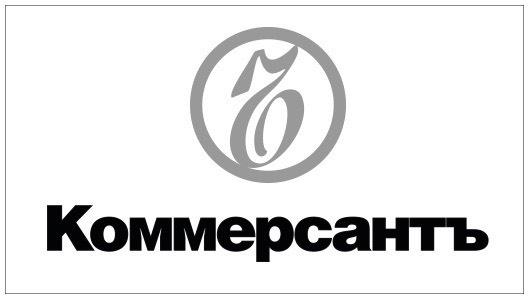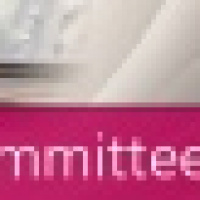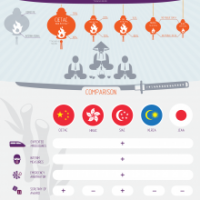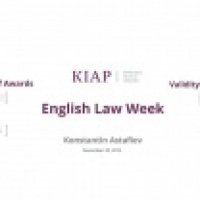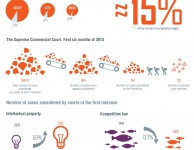Litigation is KIAP's core practice. The practice is represented in Band 1 of Chambers Europe international rating for a third successive year. According to results of Best Lawyers 2020 KIAP was recognized as the law firm of the year in the field of litigation. Litigation practice is recommended by all international directories: Chambers Europe, Chambers Global, Legal 500 EMEA, as well as by Russian Pravo 300, Pravo-300’s "Sympathy rating" and Kommersant. Andrey Korelskiy and Anna Grishchenkova are ranked top of the field. Andrey Korelskiy, the practice head, in 2018 became Deputy Chairman of the Russian Arbitration Association (RAA) and was included into the unified recommended list of arbitrators and the corporate dispute panel of the Arbitration center at the RSPP. In 2020 Anna Grishchenkova was appointed as Regional Representative of the Russian Federation in the IBA Litigation Committee for the second time, in 2019 she was appointed Deputy Chairman of the ICC Russia Commission on Arbitration. Anna is also a Regional Ambassador at HK45 - Hong Kong International Arbitration Centre’s committee (HKIAC). She is included into panel of arbitrators in Hong Kong (HKIAC) and into list of arbitrators in Austria (VIAC), Kuala Lumpur (AIAC), Korea (KCAB INTERNATIONAL) and Russia (the Board Member of the Russian Arbitration Center). Among the practice's clients are major Russian and international companies from various sectors of the economy.
Disputes in the following sectors:
- Construction
- Corporate
- Commercial (business)
- Antimonopoly
- Customs
- Labor
- Administrative (disputes with state bodies)
- Residential, land and other real property
- Oil and gas sector (including power and heat energy)
- Aviation and aircraft construction
- Leasing
- Insurance
- Finance and investments including bonds and default issues
- Intellectual property protection, including cyberspace
- Bankruptcy
- Banking
- Life and wealth damage compensation
- Business reputation and libel
- Environment and natural resources
- Consumer issues and issues of wholesale and retail trading.
Attorney
Attorney
Ph.D in Law
Senior Associate
Senior Associate
- Representation of the interests of a large office center located in Moscow on the establishment of the cadastral value of a building as being equal to its market value in a judicial procedure. The value was reduced by more than 1 billion rubles.
- Representation of the interests of the Management Company of a Closed Real Estate Share Fund in a series of judicial disputes with the tenants of the property constituting a share fund in the amount of more than 2 billion rubles.
- Representing Zara in a more than R250 million dispute against a large trade network in Moscow.
- Representation of the interests of the country's major producer of mineral fertilizers in a case to recover damages worth more than two hundred million rubles caused by a fire at a mining and processing facility.
- Representing of international hypermarket chain Globus in recovery of debt from a shopping centre building contractor before the Court of Arbitrazh. The efforts made resulted in a judgment rendered for the client with an award of some 1 mln euros' worth of damages.
- Representation of the international hypermarket chain Globus in the Arbitration Court and the Court of Appeal in relation to the claim by the shopping center construction contractor on the penalty recovery in the amount of about 0.7 mln euros.
- Representation of the interests of the international owner of large office centers located in Moscow in a series of disputes on the establishment of the cadastral value of the buildings. As a result, the cadastral value was reduced by more than 1 billion rubles.
- Representation of the interests of the largest Russian insurance company in a dispute related to thirty foreign reinsurers, including the members of the Lloyd's insurance cartel, which rejected the claims to pay reinsurance money in the amount of more than 40 million dollars in connection with the crash of a Sukhoi Superjet aircraft in Indonesia in 2012. Based on the results of different-level courts considering the disputes, the claims were upheld in full and are currently being enforced on the territory of foreign countries.
- Representation of the interests of the largest office and warehouse complex in Moscow after a fire with the damage worth more than 100 million rubles. As a result of a longstanding litigation, the case was successfully completed in favor of the Principal.
- Representing major foreign insurance company in a dispute with a foreign reinsurer on a reinsurance recovery in the total amount of more than USD 35 million arising out of the accident at the Sayano-Shushenskaya hydropower plant (total damage over USD 200 million). The result – the client’s claim was satisfied in full, afterwards the decision was enforced in the territory of Switzerland.
- Representing of Irish Bank Resolution Corporation Limited in a series of disputes related to the bankruptcy of a major international financial group, including execution of judgments from the Republic of Belize and the Republic of Northern Ireland by RF SСC (amount at issue: 200+ mln euros).
- Representing of the largest Russian holding in the electric-power supply industry in litigation with the E4 company to recover an advance of 3.5 bln rbl (about 100 mln US dollars in 2014). Dispute over the termination of contract to supply a powerplant acquired for the Serov State District Power Station construction project. Client's claim was granted: the supply contract was terminated and the advance refunded.
- Representing one of the largest retail chains protecting its investments in a number of disputes in several regions of the Russian Federation totaling 5 billion roubles. As a result all disputes were resolved in our client’s favor.
- Representing global mineral wool production leaderin a dispute with the Treasury of the Russian Federation (RF Ministry of Finance of the Russian Federation and the Federal Bailiffs Service) for compensation for breach of a reasonable period for the execution of the court decision. The precedent put in place must one way or another prompt the Federal Bailiff Service to improve the enforceability of court rulings, which are currently abysmally underenforced, bringing the entire judiciary into disrepute as a result.
- Representing the Swiss chemical company, the largest producer of mineral fertilizers in Russia, in a dispute related to the issue of application of Articles 450 and 452 of the Civil Code of the Russian Federation. The Supreme Commercial Court shared position of the client that transactions may imply conditions of unilateral termination thereof should one of the parties fail to comply with the undertaken obligations. This precedent case is important for businesses in terms of development and popularization of application of the Russian corporate law on the stage of acquisition or sale of the Russian assets.
- Representing heat generating organization in disputes with an unfair consumer – housing management company, including in the Presidium of the Supreme Commercial Court, which made precedent setting decision to prevent communal services providers’ release from liability for the quality of these services’ provision.
- Representing the MTS retail chain in a precedent-making dispute against one of the world-wide leading manufacturers of telecom equipment. Among the legal issues in the case was the right to equality in access to justice. This issue drew the attention of the worldwide legal community, since the issue of equality in access to the judicial system has never been examined from this angle before. The position of the Firm has been supported by the Presidium of the Supreme Commercial Court and has had a serious impact on the practice in other courts. Likewise, this has had an impact on the contractual clause which sets forth the terms of international arbitration, especially with foreign companies as participants in agreements with arbitration clauses.
Mock-trials (test or imitation trials)
Quite often, our grantors or colleague lawyers ask to give an independent and professional outside opinion on their position, a so-called "second opinion" on the case, to identify the strengths and weaknesses of their position and evidentiary base, to conduct a full "stress test" for the forthcoming trial prior to court hearings and to assess the oral presentation (speech) of a judicial representative. Additionally, it is sometimes necessary to form a psychological portrait of a judge and opponents in a potential dispute and to find an optimal balance of effective procedural and psychological tools for handling a case.
There are several reasons.
On the one hand, a grantor does not need a full-scale legal support for his interests in court, where either a nonpublic lawyer or an employee of another law firm acts. In this case, the KIAP experts are just a kind of "external helpers", looking at a situation with a fresh pair of eyes and at the same time enabling to save on legal costs for the project.
On the other hand, litigation lawyers want to overcome a possible bias (also called “confirmation bias”), when documents, witnesses and arguments are chosen solely for the position, and all complex, ambiguous and impairing circumstances are unconsciously ignored or not duly addressed, and it is this, at times, that can lead to catastrophic consequences in a dispute.
In complex cases, the parties' positions can be equal, and it is not always clear how the court will make its decision.
In such situations, it is extremely important to identify "blind" zones and the potential to strengthen a position. This can be solved in an imitation trial (mock trial), in which the judge, represented by an experienced court professional, hears the positions of both sides and then the improvised court makes its decision. It makes possible to obtain an independent expert advice at a relatively low cost, but with full confidentiality and in compliance with the policy of avoiding of the "conflict of interest" for any of the parties to the proceedings.
There are various possibilities of conducting a mock-trial. You can train with colleagues from your company. Let them read the documents of your case, discuss the position with them. This is useful, but colleagues are not always ready to criticize in full or to spend their time, being busy with their own projects. Our long-term judicial experience shows that it is more effective to carry out such proceedings with independent colleagues from other firms.
Depending on the purpose of the trial, the personality of the judge, your opponents and budget, you can choose a trial option:
Light mock-trial:
- preliminary analysis of key documents
- oral hearing
- preparation of a report with recommendations
Complex mock-trial:
- preliminary dispute analysis
- selection of an arbitrator (if arbitral proceedings)
- psychological aspects: a portrait of the judge and the opponents
- complete evaluation of the evidence base
- assessment of procedural documents of the case
- development of a "history" and a trial strategy
- training of technical specialists
- interrogation of witnesses
- oral hearings
- preparation of a comprehensive report with recommendations
















